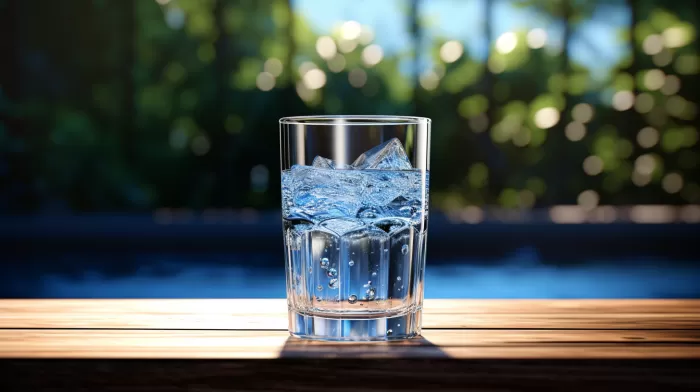How much water do you need to drink every day? The “8 glasses a day” argument rages on, but there are a couple of things you might want to know.
First, you can drink too much and throw off your electrolyte balance. Dr. Tim Noakes collected data for ten years and found that endurance athletes who consumed between 16 and 24 fluid ounces per hour during exercise typically replenished as much fluid as efficiently as possible. He also noted the prevalence of hyponatremia (low blood sodium) during ultramarathons and triathlons in runners who hydrated excessively. As your body’s water levels rise, your cells begin to swell, and the effects can be life-threatening.
So, unless you’re an ultramarathoner, you don’t need to be drinking 64 ounces of water a day to stay hydrated. You’re getting fluids from food, and you’re probably not losing as much as an extreme athlete does each day.
When Warmer Temperatures and Humidity Affect Your Hydration Needs
Second, warmer temperatures with humidity can change the equation. For example, if it’s 70 degrees out, even if the humidity is high, you have no worries—it still feels like 72 out. But if it’s 95 degrees and the humidity is very high, like it is in many southern states, it can have the same effect on your body as when it’s 160 degrees out!
Even mild dehydration can affect you. Mild dehydration is defined as an approximately 1.5 percent loss in normal water volume in the body. When scientists examined dehydrated young women, they found that mild dehydration causes headaches, fatigue, and difficulty concentrating. Thirsty women also perceive tasks as more difficult when slightly dehydrated, although there is no substantive reduction in their cognitive abilities.
In young men, mild dehydration causes some difficulty with mental tasks, particularly in the areas of vigilance and working memory. While young men also experience fatigue, tension, and anxiety when mildly dehydrated, adverse changes in mood and symptoms were “substantially greater in females than in males, both at rest and during exercise,” according to the researchers.
How Much Water Should You Drink to Stay Hydrated?
In order to stay properly hydrated, research suggests drinking about 5 ounces of water every 15 to 20 minutes of exercise. Other than that, thirst is your body’s best indicator.
It’s also important to note that everyone’s hydration needs are different, depending on factors such as age, weight, activity level, and climate.
Tips for Staying Hydrated
Here are some tips to help you stay hydrated throughout the day:
- Keep a water bottle with you at all times. This makes it easy to take sips throughout the day.
- Try flavored water or add a slice of lemon, lime, or cucumber to your water for a refreshing taste.
- Eat hydrating foods like fruits and vegetables. Watermelon, strawberries, cucumbers, and celery are all excellent sources of hydration.
- Drink water before, during, and after exercise.
- Listen to your body. If you’re feeling thirsty, drink up!
Signs of Dehydration
It’s essential to know the signs of dehydration, so you can take action quickly. Symptoms of dehydration include:
- Thirst
- Dry mouth and throat
- Dark yellow urine
- Headache
- Dizziness or lightheadedness
- Fatigue
- Rapid heartbeat or breathing
In severe cases of dehydration, symptoms may include:
- Confusion
- Irritability
- Sunken eyes
- Rapid or weak pulse
- Cold, clammy skin or hot, dry skin
- Fainting or unconsciousness
If you experience any of these severe dehydration symptoms, seek medical attention immediately.
How to Prevent Dehydration
Ensuring you drink enough water daily is essential to overall health. Here are some steps you can take to prevent dehydration:
- Drink water regularly throughout the day.
-
Start and end your day with a glass of water.
-
Monitor your urine output and color. Dark yellow urine may indicate dehydration, while clear or light yellow urine typically signals proper hydration.
-
Pay attention to how much you’re sweating, especially during exercise. The more you sweat, the more water you need to replace.
-
Choose water as your primary choice of beverage. Sugary drinks, alcohol, and caffeinated beverages can contribute to dehydration.
-
Ensure those vulnerable to dehydration, such as children, elderly, and those with certain medical conditions, consume adequate fluids.
By paying attention to the signals your body gives you and following the tips above, you can maintain healthy hydration levels and optimal health.



